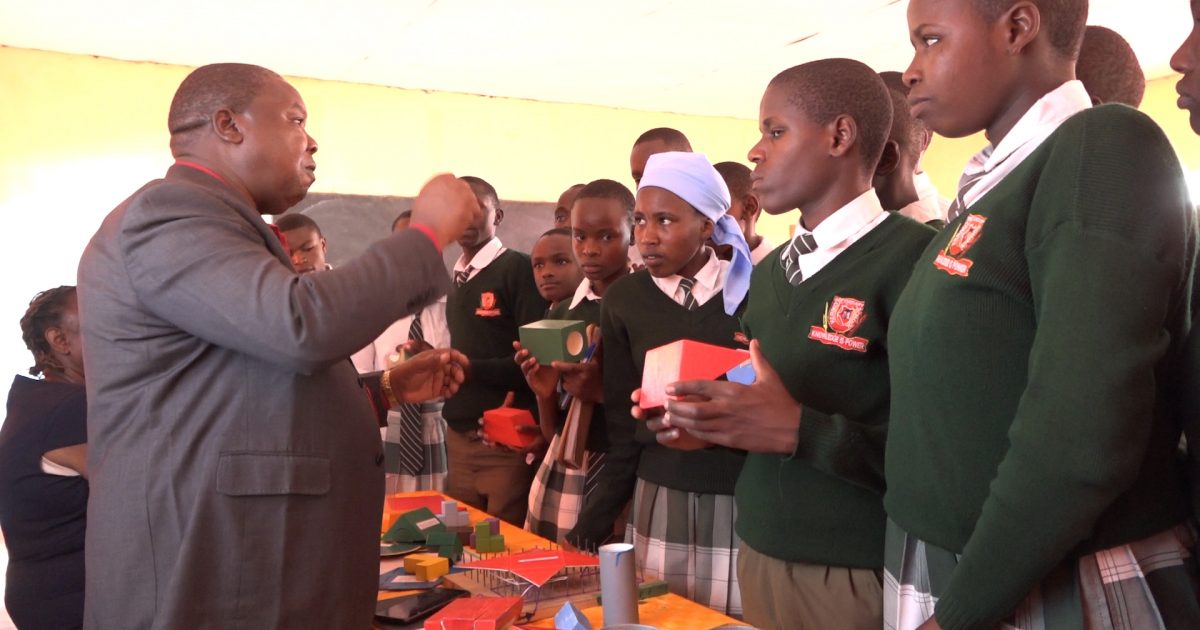Four schools in Nakuru County are set to be transformed into model centres for promotion of science related subjects across the devolved unit.
The Ministry of Education’s Centre for Mathematics, Science and Technology Education in Africa (CEMASTEA) indicated that Keriko, Njoro Day, Larmudiac and Mau Narok Secondary Schools all within Njoro Sub-County will benefit from the initiative.
The Center’s Coordinator for special programmes and student learning Mrs Beatrice Macharia said Science, Technology, Engineering and Mathematics (Stem) model schools will inspire learners to excel in science and mathematics through programs, policies and processes within and outside classrooms.
She said CEMASTEA had rolled out an outreach program where it was visiting schools and showcasing innovations that can be used to improve performance of students in Stem subjects and enhancing efficiency of teachers.
“Our strategy is to make a school Stem-focused through improving the relationship between teachers and students, offering specialized curricula, linking students to institutions of higher learning and offering related courses. We are identifying gaps which we will address while training teachers,” said Mrs Macharia.
Ms Macharia who spoke at Keriko Secondary School said the CEMASTEA school outreach program is anchored on three pillars: learners, teachers and the school environment. For the learner, the focus is on motivation, engagement in the subjects, confidence and achievement while with regard to the teacher emphasis is being placed on improved conceptual knowledge in STEM.
On school improvement, the focus is on creating a positive STEM ecosystem in facilitating good practices among teachers and in enhancing retention and continuity of female students in STEM subjects.
The outreach program proposes to complement existing STEM strategies in schools to enable students to be reflective learners, able to accrue the desired outcomes, transition through STEM subjects and where possible transition into STEM related careers.
“The key emphasis is on ensuring STEM teaching and learning is student-centered. We want learners to develop their critical thinking skills and collaborate in teamwork building which are the desired 21st century skills needed in the future STEM careers,” The Coordinator noted.
Ms Macharia disclosed that they were training teachers to improvise locally available materials in teaching Stem Subjects adding that they have been sensitizing mathematics and science heads of departments from secondary schools on the importance of incorporating 21st century skills in teaching the subjects.
According to the coordinator, many students are not conversant with the vast array of careers and hobbies that exist in science. Additionally, many students she added do not believe they can perform well in science and carry the perception that it is too difficult, hence the need for outreach programs by CEMASTEA to debunk such beliefs.
She added, “At CEMASTEA we are aware of the importance of the role we play in championing STEM by supporting education and mentorship programmes. Teachers play a key role in encouraging or discouraging students from taking up science subjects in secondary school,”
She indicated that a study conducted by CEMASTEA showed teachers routinely advise students they consider weak not to take up science courses, when they should be encouraging them instead.
Other challenges identified include poor school infrastructure. Likewise, many schools were not proactive in entrenching the study of science. For instance, the study found that about 117 pieces of science equipment donated to one of the Science, Technology, Engineering and Mathematics (STEM) model schools had never been put to use.
“Vision 2030 is premised on more students taking up mathematics and science in the hope that this will drive scientific inquiry and innovation. Our outreach program is expected to inspire learners to excel and pursue careers related to science and mathematics,” observed Ms Macharia
Through the outreach program CEMASTEA is encouraging students pursuing the subjects to innovate and enjoy a hands-on approach to teaching and learning.
Mrs Macharia indicated that CEMASTEA was also training teachers across Kenya on the best ways to use modern teaching equipment to help improve students’ performance in Mathematics and Science subjects across the country.
She added that they have been running a number programs that targets both secondary and primary school teachers who are trained on the two subjects.
“Today the theory-based classes cannot solve the 21st century problem and that’s why we must as a country embrace and adapt technology within our classes,” stated Mrs Macharia
She said that CEMASTEA has been supplying robotic kits to students in secondary schools which they use during the Mathematics and Science lessons. This she observed has greatly impacted on their ability to solve problems within these subjects.
“We also teach Students coding, robotic skills and technology. The challenge now is for us to inspire students from a young age to pursue STEM oriented subjects with a sound purpose to reduce skill shortages in the future and help Kenya realize a sustainable economy,”
Like most African countries, Kenya continues to face immense challenges in the field of STEM at all levels of education — primary, secondary and tertiary level — in terms of performance, enrolment and gender disparity. Research into the declining quality of STEM across Africa has blamed this on various challenges such as poverty, inadequate funding, lack of interest from students, unqualified or untrained teachers, inadequate learning aids and incessant strikes or industrial actions.
Mrs Macharia observed that to address the gap and to prepare the continent for the future, stakeholders in the education sector must take urgent and decisive action to encourage the uptake of STEM subjects from an early age by showing students their significance and bright career prospects.
Benjamin Buluku, a Mathematics teacher at Keriko Secondary School hailed the outreach program noting that it will help schools review their STEM performance from the Kenya National Examinations Council’s KCPE/KCSE examination school based reports.
Mr Buluku added the schools will also be able to review the STEM school culture and practices.
While admitting that negative perception towards technical subjects was a cause for concern, Christabel Wangui, a biology teacher, was optimistic the new approach will pay off.
“As a mathematics and biology teacher, girls always tell me the subjects are hard, which is not the case. Teachers should be trained and empowered to teach these subjects in a way that makes them attractive. We must find ways of changing this attitude,” said Wangui.
She stated other strategies specific for motivating female learners and improving their self-perception should include use of role models and vibrant career guidance.
By Jane Ngugi and Dennis Rasto




